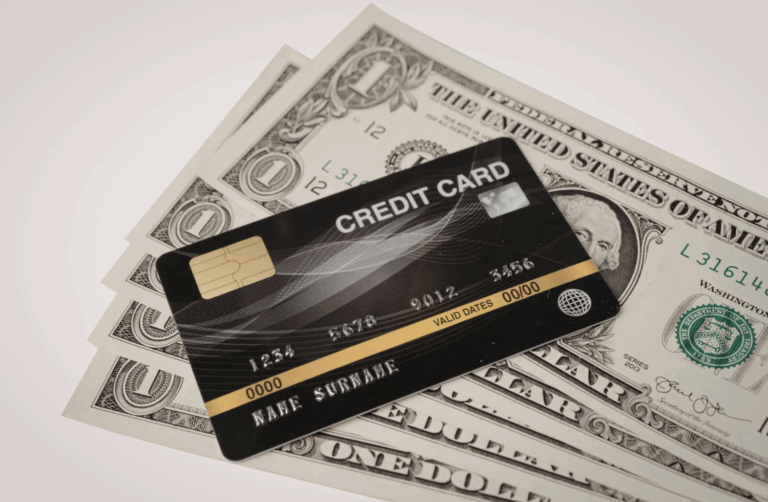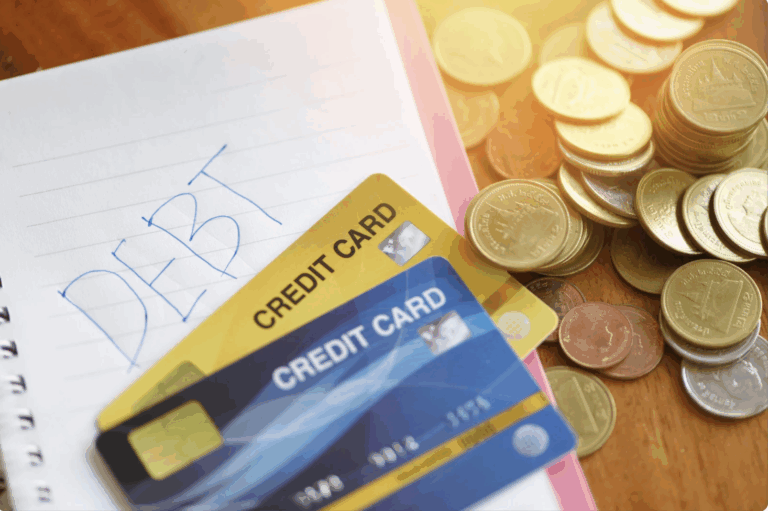You’re not alone if you’re juggling credit card balances but dreaming of a new home. Many buyers wonder if debt will block their mortgage approval.
According to the latest numbers from the Federal Reserve Bank of St. Louis, the average American household carried $6,065 worth of credit card debt in 2024. Given these numbers, it’s no surprise that many would-be homebuyers wonder, “Can you buy a house with credit card debt?”
The short answer is, yes, it is possible to buy a house with existing debt. However, you should know that your debt will impact your home-buying power. Keep reading to learn more about how having credit card debt will affect your ability to get a mortgage and how you can put yourself in the best position possible to buy a home.
How does credit card debt affect getting a mortgage?
Before we can take a closer look at how much debt you can have when you’re trying to gain approval for a mortgage, it’s important to take a closer look at how having credit card debt will affect your chances of getting a mortgage. To that end, we’ve laid out a few key points below:
Your debt will impact your credit score
To start, your debt is undoubtedly having an impact on your credit score. According to Experian, credit utilization counts for about 30% of your overall FICO score.
At its core, the term “credit utilization” refers to the percentage of credit you’re currently using compared to the total amount of credit available. As a rule of thumb, trying to use less than 30% of the available credit across your cards is a good idea. Credit utilization higher than that will likely hurt your credit score.
When a lender determines whether or not to approve you for a home loan, one of the first things they look at is your credit score. Put simply, they use this metric to determine how likely you are to pay back your loan. Therefore, having a higher score indicates that the lender is more likely to be repaid and, as a result, they may be more likely to approve your loan application.
Your debt will affect your debt-to-income ratio
In addition to your credit score, another factor that lenders consider when deciding whether or not to approve you for a home loan is your debt-to-income ratio. A debt-to-income ratio is exactly what it sounds like. The lender compares how much income you have coming in each month to how much of that income will go towards other debt payments.
In this case, your debt-to-income ratio is another indicator of how likely you’ll repay the lender. The rationale is that if you have too many existing debts, you may prioritize paying those over your monthly mortgage payments. As a result, if your debt-to-income ratio is too high, you will probably have a much harder time getting a mortgage.
How much debt can you have when buying a house?
Now that you have a better idea of how having credit card debt will impact your ability to be approved for a mortgage, the next step is to learn how much debt you can have while buying a house.
In general, lenders look for a debt-to-income ratio of less than or equal to 43%. That said, in some cases, lenders may go up to a ratio of 50%, particularly if the borrower has a high credit score or is making a sizable down payment.
You’ll need to do a little math to get an idea of your debt-to-income ratio. First, you’ll want to add up all the recurring monthly debt payments you make. Then, divide that number by your gross monthly income. Finally, multiply the result by 100, and you will have your current ratio.
4 tips for getting a mortgage with existing debt
Talk to a financial expert
When you decide that you’re ready to think seriously about buying a home, your first step should be to talk to a financial expert. They can do the math for you and, if you aren’t in a position to buy a home right now, they can give recommendations on things you can do to improve your financial standing.
Make your payments on time
In the meantime, making all of your debt payments on time is also helpful. Payment history is the most significant factor in determining your credit score. The Experian article referenced above indicates that payment history accounts for 35% of your overall score. That said, the more payments you make on time, the better your payment history will appear.
Pay above the minimum payment
While you have to make at least your minimum payment to stay current with your card, paying as far above the minimum payment is generally a better idea. This is because paying down your debts will ultimately improve your credit score and debt-to-income ratio, making it easier for you to get approved for a loan.
Avoid adding to your existing balances
Lastly, it’s important to avoid adding to your existing debt. Creating more debt will only undo the hard work you’re doing of paying down your balances. With that in mind, make a conscious effort to examine your spending habits and change the behaviors that led to you taking on credit card debt in the first place.
The bottom line
When everything is said and done, buying a house when you have credit card debt is possible. However, getting approved for a loan and a higher purchase price is much easier if you go into the mortgage process without it. Given that, if you think you might be ready to consider buying a home, it’s a good idea to talk to an expert about the steps you can take to put yourself in the best buying position.
Call us for a free consultation today at 866-890-7337 or fill out our short contact form, and we’ll contact you to discuss how you can settle your credit card debt and prepare to buy a home.





